A Systems Approach for Disaster Risk Reduction: Exploring the Nexus of Energy, Food, and Human Mobility in the Northern Countries of Central America
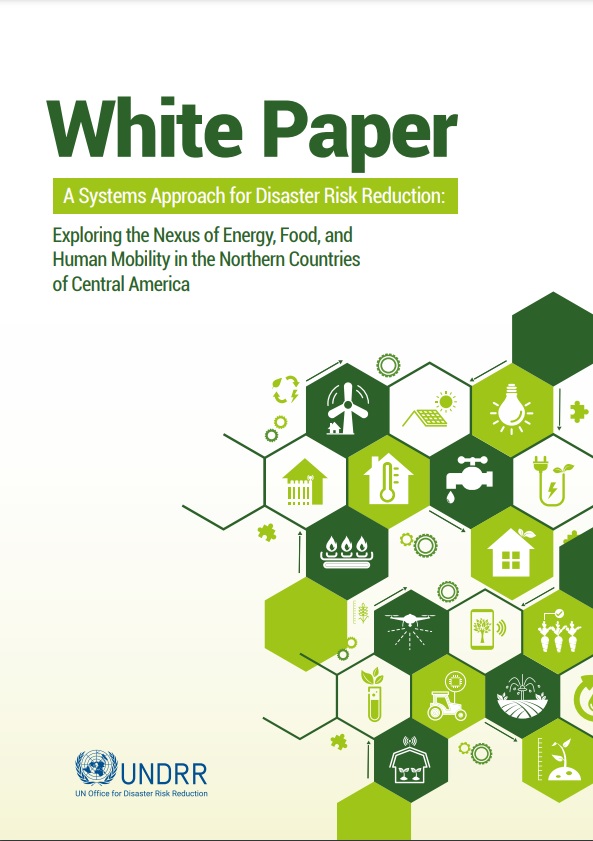
Globally, disasters and their impacts have been characterized by increasing frequency and changing patterns. Global warming effects, including climate change, have exacerbated the severity and frequency of hydrometeorological and oceanographic, and other risk factors or drivers, such as population growth, urbanization, limited access to resources, inadequate infrastructure, and prevailing structural development conditions, putting additional lives […]
Water–energy–food–health nexus in Lebanon
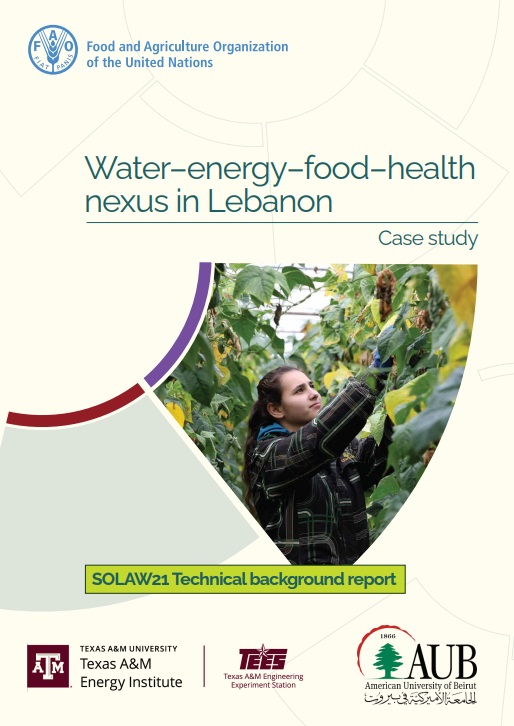
This study used a water–energy–food system-of-systems assessment to evaluate the sustainability of the Mediterranean diet in Lebanon. The specific aims were to: 1) identify and quantify the critical interconnections between water, energy and food systems in Lebanon; 2) develop a nexus framework to assess the trade-offs associated with adopting interventions within current water, energy and […]
Building resilience in fragile and conflict-affected agrifood systems through a water-energy-food nexus approach
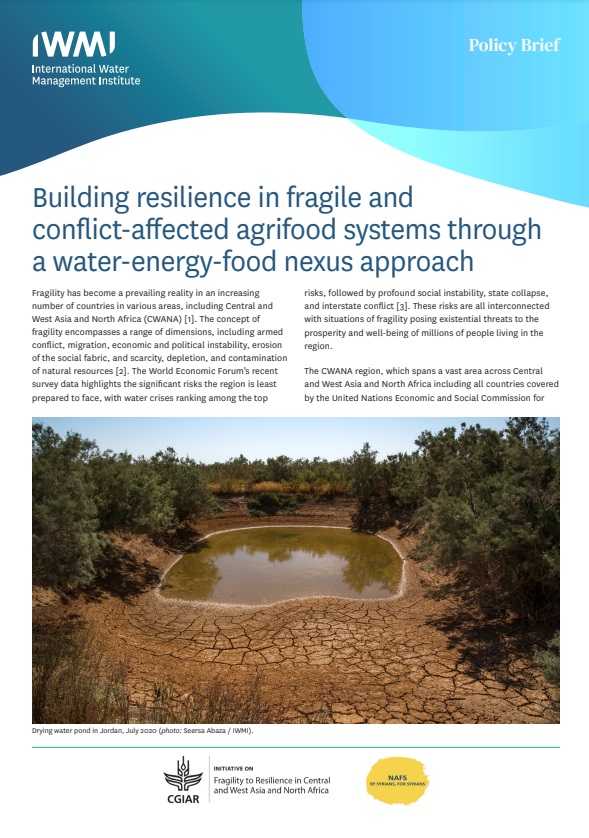
Fragility has become a prevailing reality in an increasing number of countries in various areas, including Central and West Asia and North Africa (CWANA) [1]. The concept of fragility encompasses a range of dimensions, including armed conflict, migration, economic and political instability, erosion of the social fabric, and scarcity, depletion, and contamination of natural resources […]
Addressing Food Security Challenges in Lebanon: A Water-Energy-Food-Health Nexus Approach

As Lebanon faces compound challenges including a pandemic, economic, financial and political failure, a looming food security crisis is rapidly approaching. Much of this crisis could be attributed to the lack of long-term planning and investment in the sustainability of the agricultural sector. Another challenge lies in the existing disconnect between decision making between the […]
Evaluating farmer priorities and readiness to adopt new water, energy, and agricultural solutions in Lebanon

As Lebanon faces compound challenges including a pandemic, economic, financial and political failure, a looming food security crisis is rapidly approaching. Much of this crisis could be attributed to the lack of long-term planning and investment in the sustainability of the agricultural sector. Another challenge lies in the existing disconnect between decision-making between the agricultural […]
Examining Lebanon’s Resilience Through a Water-Energy-Food Nexus Lens
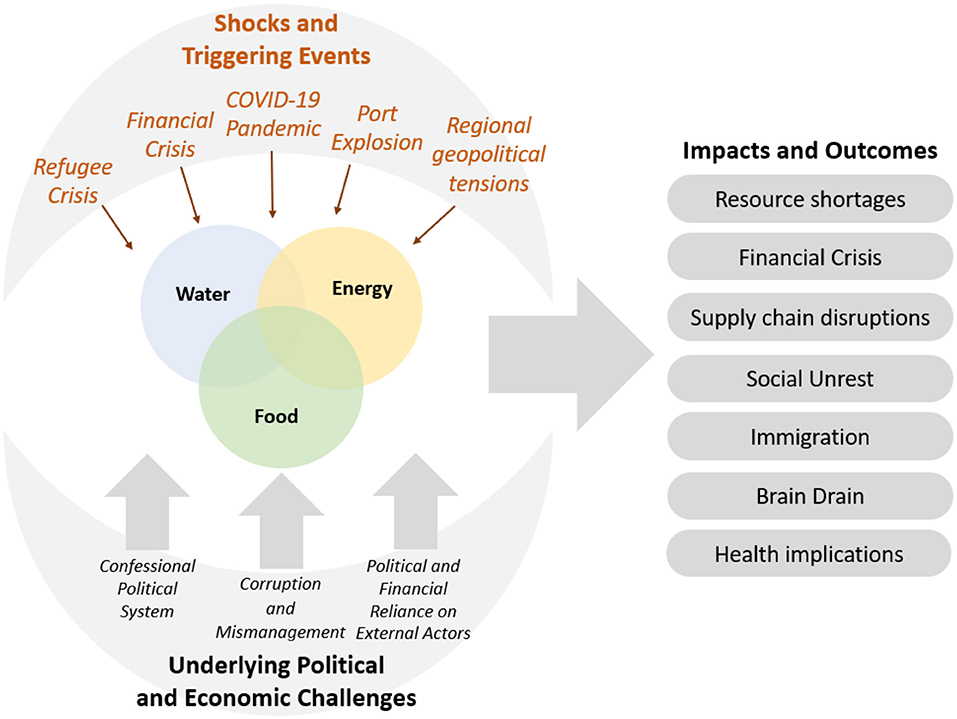
Lebanon faces a mix of underlying political and economic challenges, shocks, and triggering events that threaten the sustainability and resilience of its interconnected resource systems. The complex nature of these pressures begs for a systems approach to better understand the existing interconnections and to support the co-creation of cross-sectoral solutions to address them. This article […]
Toward Resilient Water-Energy-Food Systems under Shocks: Understanding the Impact of Migration, Pandemics, and Natural Disasters
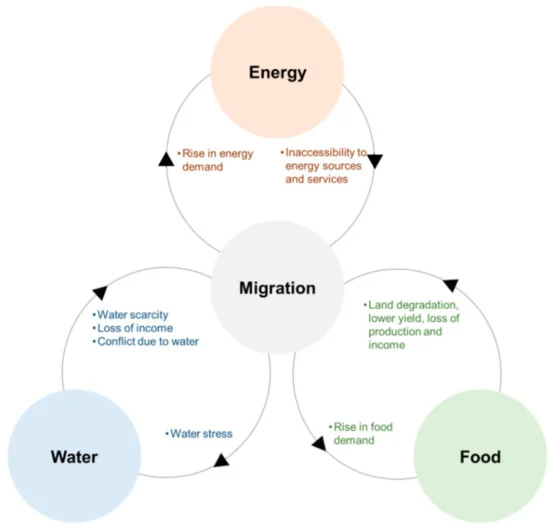
The historic pandemic faced by the international community today boldly demonstrates the complexity and interconnectedness of the resource challenges we must better understand and address in the future. Further complexity is observed when accounting for the impact of compounded shocks related to natural disasters and forced migration around the world. Effectively addressing these challenges requires […]
Toward creating an environment of cooperation between water, energy, and food stakeholders in San Antonio

The San Antonio Region is home to a rapidly growing population with developing energy and agricultural sectors competing for water, land, and financial resources. Despite the tight interconnectedness between water, energy, and food challenges, little is known about the levels of communication and coordination among the various officials responsible for making the decisions that affect […]
Evaluating the Potential of a Water-Energy-Food Nexus Approach toward the Sustainable Development of Bangladesh

In pursuit of continuous economic development, Bangladesh has undertaken long-term plans to boost its productivity in the agriculture, energy, and industrial sectors and to align with the United Nations Sustainable Development Goals (SDGs). Unless these strong interconnections and cross sectoral impacts are recognized, achievement of the future policy goals and national priorities of the concerned […]
WATER AND YOUTH ENGAGEMENT STRATEGY

Youth make up a large portion of the world’s population, as well as the UfM member states population. Nearly 15.5% of the world’s population is between the ages of 15-24.4 Within the UfM member states, a similar population average of 12.8% of the total population are between the age range of 15-24.5 If we consider […]